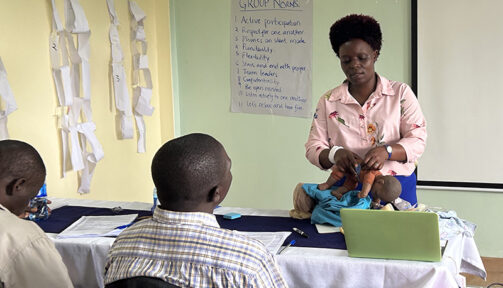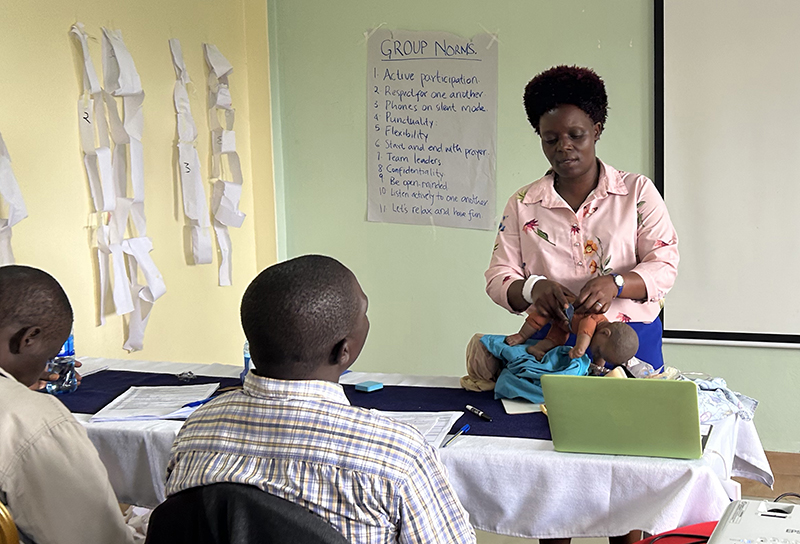Patience Afulani came to UCSF as a postdoctoral research fellow and ultimately joined the faculty, working in maternal health. Dilys Walker, MD, director of IGHS’s Center for Global Maternal, Newborn and Child Health, said Afulani thinks and acts both globally and locally—on improving women’s pregnancy and birth experiences and outcomes in Kenya and her native Ghana, as well as in San Francisco.
Afulani has a project underway in Kenya and Ghana addressing healthcare provider stress and unconscious bias that exemplifies the benefits of IGHS’s philosophy in investing in people. With IGHS’s support, Afulani is now paying her experience forward, launching a program that improves the skills and experiences for many more women’s health providers—who, in turn, improve their patients’ lives.
“I had practiced in Ghana as a clinician before coming to the U.S. to earn a PhD in public health at UCLA,” Afulani says. That experience helped shape the project because Afulani saw how overburdened her fellow providers were. She and her colleagues quickly realized that, while their initial goal was to improve patients’ experiences, they couldn’t just give more tasks to already-stressed providers.
“How can we improve the providers’ experience as a way of improving the patient experience?”
– Patience Afulani
“By helping providers better manage their stress and prevent burnout, and helping providers to be more aware of their biases, can this impact their interaction with patients? Can we improve the experience of pregnant women? And can we reduce the inequities in people’s experiences?”
The project has received funding from the NIH, first for a pilot project conducted in 2022, and now to expand to 40 sites in the two countries over the next five years.
The program uses an intervention called CPIPE—Caring for Providers to Improve Patient Experience. It has five components:
- Training. Providers are taught valuable skills in care and delivery, including simulations on handling stressful situations and difficult patient encounters, as well as how to recognize the unconscious class-based bias that often creeps into patients’ experience. “Women from wealthier households report that they had a better experience than women from lower income households,” Afulani says. “Providers talked about how they unconsciously mistreat some women.”
- Mentorship. The program pairs providers with a more experienced person from their own facility.
- Peer support. Providers meet together as a group—nurses with nurses, support staff with other staffers, clinical officers and doctors with their peers. “These groups provide them with the opportunity to debrief on things that are happening on their ward, and also to connect with each other,” Afulani says. “It’s also an opportunity for them to brainstorm solutions to the issues they are facing.”
- Leadership. Issues discussed during peer support group meetings are brought up to the facility and county leadership, so that the providers can help improve the situations that lead to stress and burnout.
- Embedded champion. Providers identify two people in their facility to serve as “champions,” who lead activities in their facilities and bring issues to leadership’s attention.
The pilot showed that “providers love participating in it,” Afulani says. “We have data showing the impacts on perceived stress, on burnout and on providers’ reported perceptions of how it’s improved their own experiences as well as their interactions with patients.”
In the new trial, she says, “we’re collecting patient outcome data to see that the intervention actually translates into impacts for patients.”

